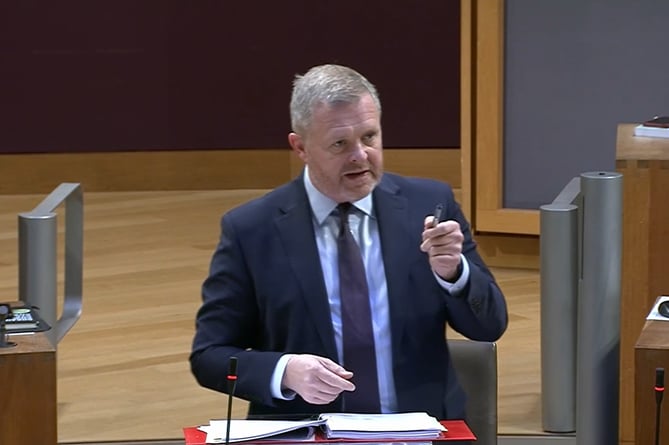Wales’ new economy secretary set out his priorities against the backdrop of a significant rise in economic inactivity and a fall in employment compared to the rest of the UK.
Jeremy Miles outlined his aim to make Wales the best place to start, invest in and grow a business by improving productivity, attracting investment and redesigning skills support.
In a statement to the Senedd about his economic vision on 23 April, Mr Miles said increasing productivity and economic dynamism will be his number one priority.
He told the chamber his second priority is to attract and encourage business investment, both in established businesses based in Wales and from new investors.
The economy secretary said his third priority is to redesign employability and skills support, ensuring that economic priorities, apprenticeships and vocational education are all aligned.
However, opposition MSs warned that Wales’ economy is underperforming and urged the Welsh Government to set firm targets to measure success.
Mr Miles, who is also responsible for energy, cautioned that ongoing financial constraints as well as political and economic uncertainty at a UK level make the aims more challenging.
He said: “The legacy of EU withdrawal, the pandemic and ongoing budgetary constraints have weakened the economy.
“The slowdown in UK productivity has impacted output, wages and household incomes, and these inequalities were already more acute in Wales before this time.”
The former education minister, who retains responsibility for the Welsh language, criticised the “cack-handed’ approach of the prime minister to so-called sick note culture.
Samuel Kurtz, the Conservatives’ new shadow economy secretary, raised concerns about worrying trends in economic inactivity and employment.
He told the chamber that statistics show Wales’ unemployment rate was 60 per cent higher than the UK average in the three months to February.
Mr Kurtz called on the economy secretary to introduce job-creation targets.
He said it should be a sense of shame for the Welsh Government that Welsh workers have long taken home less money than their counterparts anywhere else in the UK.
Luke Fletcher, for Plaid Cymru, said sectors across the economy have been calling out for a comprehensive and meaningful industrial strategy.
The South Wales West MS described the economy secretary’s statement as “essentially a list of economic goods the government would like to see in Wales”.
Mr Fletcher warned: “But there’s no substantive plan on how those goods will be delivered, no road map, no waymarkers and no precise sense of the final destination.”
The shadow economy secretary raised concerns about skills shortages in the green sector, calling for closer collaboration with further education providers.
He said: “It's currently a case of them putting their finger in the air, seeing which way the wind blows, and hoping for the best. That doesn't fill me with much hope.”
Reacting to the statement, Ben Francis, Wales Policy Chair at the Federation of Small Businesses (FSB Wales) stated “there is much to be welcomed”, but raised concerns over uncertainty.
He said: “We cannot ignore the challenge and uncertainty many Welsh businesses face right now.
“Welsh Government’s decision to reduce business rate support this year continues to be felt by many in hospitality, retail and leisure.
“Vision for our economic future must not overlook the need and opportunities to support the ambitions of businesses at the heart of every community.
“Economic growth and recovery from recent difficult years is not guaranteed.
“Only by harnessing the talent and determination of Welsh business owners and entrepreneurs will we realise what the Cabinet Secretary has set out in his statement and that requires understanding the challenges they face as well as their ambitions.
“Beyond this positive vision is the need for detail as to the ‘how’ and it is that which we will look to in our coming conversations with the Cabinet Secretary in informing and supporting his work.”




